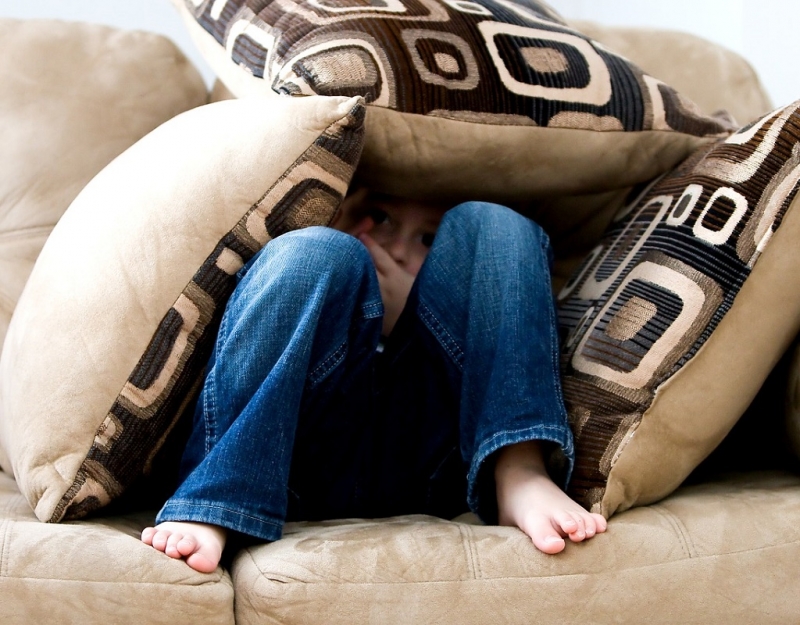If your child displays wilful behaviour that is disruptive, disrespectful and creates disharmony amongst his friends and family, you may be wondering if this is simply a stage he is going through – or could it be a symptom of a more serious behavioural condition such as Oppositional defiance disorder (ODD).
What is Oppositional defiance disorder?
Oppositional defiance disorder is a behavioural disorder that is thought to affect one in 10 children under 12 years, with boys outnumbering girls by two to one. The disorder can be seen in children as young as three years and consists of a pattern of negative, defiant and hostile behaviour that isn’t grown out of. A diagnosis of ODD is considered if your child exhibits at least four of the following behaviours for more than six months:
- Regularly loses his temper and is often angry
- Argues with everyone, particularly adults, and easily becomes resentful
- Actively defies – or refuses to comply with – requests and rules
- Tries to annoy people
- Blames others for his misbehaviour
- Displays spiteful or vindictive behaviour
- Is moody, particularly touchy and easily annoyed by others
- Has low self-esteem
- Becomes frustrated easily
Because many children can be seen to display one or more of these behaviours as part of their development, a diagnosis of ODD is considered if these behaviours persist for more than six months and if they occur more often than is typical of other kids of the same age and developmental level.
Oppositional defiance disorder is considered particularly if these behaviours consistently cause problems at school, at home or standing in the way of forming friendships.
How can I find out if my child has ODD?
Because there is a world of difference between the behaviour of a naughty, wilful child working through a developmental stage and a child with Oppositional defiance disorder, it is important that you get your child professionally assessed if you are concerned about your child’s behaviour.
ODD can be diagnosed by a child psychologist, child psychiatrist or paediatrician who specialises in behavioural disorders. The diagnosis is made by way of interviews with the child in questions as well as parents and carers, along with a comparison of the child’s behaviour with an ODD behaviour checklist.
How can I help my child with ODD?
Because a child with unmanaged Oppositional defiance disorder can grow into an antisocial adult who struggles to maintain meaningful relationships, early intervention and treatment of ODD is important.
Treatment of ODD involves the entire family and includes strategies such as:
- Parent training. With specific training, parents can interact and manage their child’s behaviour in a way that encourages good behaviour.
- Family therapy. By involving all family members in therapy, effective ways of communicating and problem solving are discovered and implemented.
- Consistency of care. ODD kids need structure to thrive so it is vital that all carers – including parents, teachers and extended family – manage the behaviour of an ODD child consistently.
Tips for parents
- Identify triggers. When you know what can set your ODD child off, you can help him to develop coping skills to deal with these triggers. Don’t try to avoid these triggers because this won’t teach him how to cope; instead stay calm and help him negotiate his way through a tricky situation.
- Work on developing compliance and coping skills. ODD kids need structure and training to help them develop coping skills for everyday life. Expecting compliance from your child may be a daily struggle but if you teach him coping skills that work, you will begin to see a calmer, more compliant child.
- Pick your battles. With a child with ODD, you could be waging war all day, every day – which is exhausting for everyone. Instead, avoid constant power struggles by setting limits ahead of time and expecting your child to comply.
- Be prepared. Always have a plan for defiant behaviour before it occurs. Knowing that there is an exit strategy when a meltdown is in progress, will help you stay calm and not reward the defiant behaviour with your attention.
- Talk to other parents in the same boat. As the saying goes, a problem shared is a problem halved – and this is particularly true when parenting a defiant child. Not only does talking to other parents with ODD kids give reassurance that you are not in this alone, it offers a practical forum for strategy-sharing.
- Praise good behaviour – but be specific. Rather than a general, ‘You’re a good boy’, ODD kids do better with praise that recognises specific acts as it reinforces their compliance. Instead try, ‘Thank you for putting away your toys when I asked’.
This article was written by Ella Walsh for Kidspot, New Zealand’s best family health resource.







Leave A Comment
You must be logged in to post a comment.